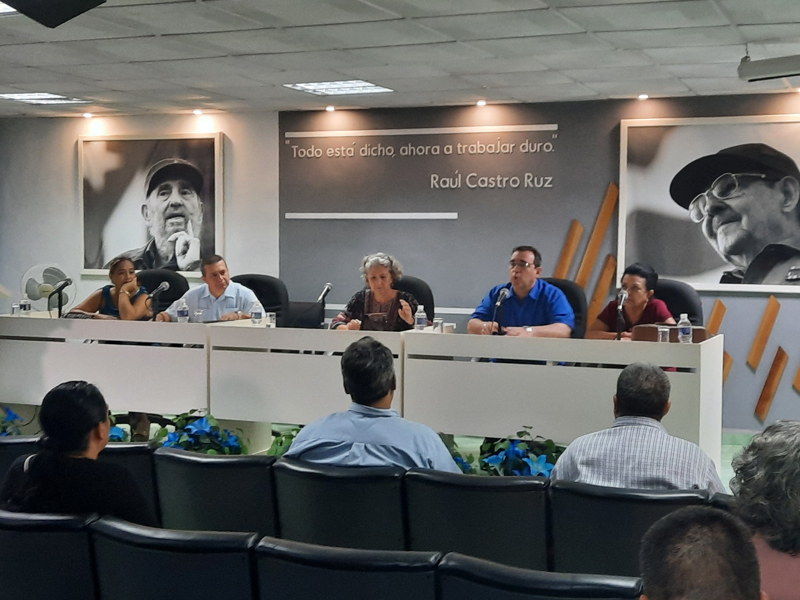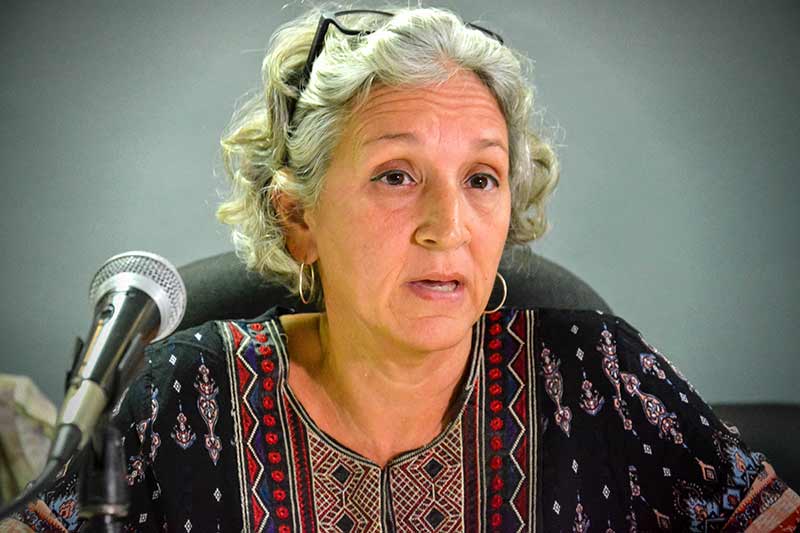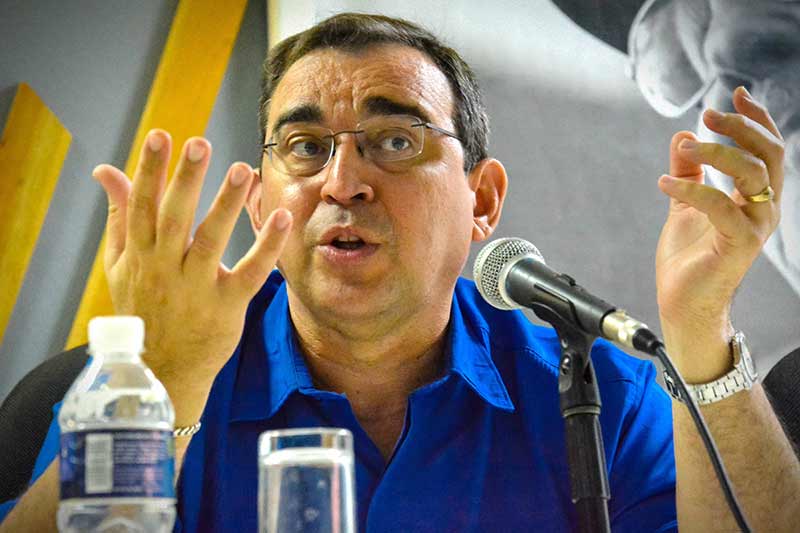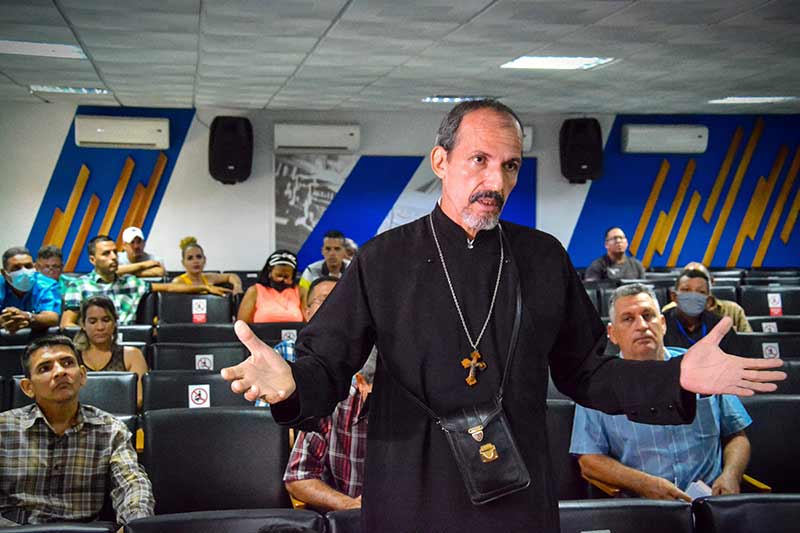Religious leaders and jurists debate on the Family Code in Holguín
- Written by Claudia Patricia Domínguez
- Published in Holguin
- Hits: 2011
 Photo: By the author
Photo: By the author
Religious leaders from the province of Holguín discussed on Wednesday on the Family Code in meeting with the jurists Yamila González Ferrer and Leonardo Pérez Gallardo, both drafters of the regulations that will be submitted to a popular referendum on September 25.

Pérez Gallardo, professor at the University of Havana and president of the Scientific Society of Civil and Family Law, said that the current Code dates back to 1975, today out of date with family models and the current sociodemographic reality.
He explained that the Family Code regulates the legal status of social relations in the family under the principle of equality, so it cannot rank or discriminate one family model with respect to another and in this sense homoaffective marriage cannot be outside of this recognition.

“It's about striking a balance between faith and reason. The new Family Code breaks the legal, not social, paradigms”, he assured, and underlined that it constitutes a commitment to private autonomy and respect for diversity, since the law came to settle a debt with people who are currently in a form of vulnerability.
The role of the extended family as a consequence of the coexistence in the home of several generations, the responsibility of assuming a responsible motherhood and fatherhood, ensuring the right of the elderly to have a dignified old age as well as adoption without this meaning that it must depriving the minor of knowing his identity were other topics addressed by Pérez Gallardo.
Regarding solidarity pregnancy, he pointed out that it will be a procedure of extreme care, which the court will approve only once for a person over 25 years of age, a decision that will take into account the medical and psychological criteria of those involved.
María Yi Reina, pastor of the Los Amigos Church in Cuba and coordinator of the Council of Churches in Holguín, appreciated this opportunity for exchange in which she delved into various core aspects of the Family Code.
She added that the meeting was another democratic exercise in which they had the opportunity to express their disagreements, especially with some points related to marriage, however, she urged her religious brothers not to stop participating in the popular consultation.

"The kingdom of heaven is one of peace," said Artemio Borjas, pastor of the Church of Christ, and pointed out that they should ask the Lord for much wisdom in their prayers, because these are times when it is necessary to think rationally.
He assured that he will take what he learned to his congregation. "In the Church the doors will always be open to everyone, because I am convinced that when there are privileges or discrimination it is because things are not being done well."
"Just as the Church offers its faithful a space of peace and protection, the state has the duty to provide its citizens with these guarantees through law," said Yamila González Ferrer, vice president of the Union of Jurists of Cuba.
She insisted that the challenge is to teach not to discriminate as a society, so that respect for difference is possible. The Code intends to multiply and in this way grant each person a path in the search for their happiness.
Ernesto Santiesteban Velázquez, member of the central committee of the Communist Party of Cuba and first secretary in the province of Holguín joined this reflection and noted that diversity of opinion cannot lead to disunity.
“The commitment is to build together a better society as a legacy for the new generations. For this reason, they should not lose the opportunity to exercise their right to vote and let the ballot boxes decide the fate of Cuban families”, he indicated.
